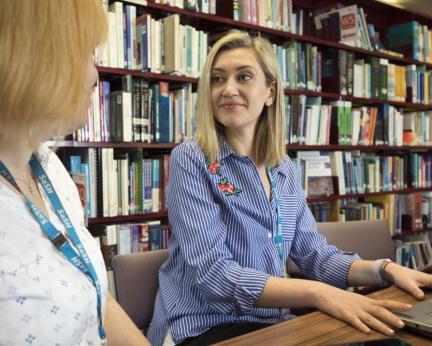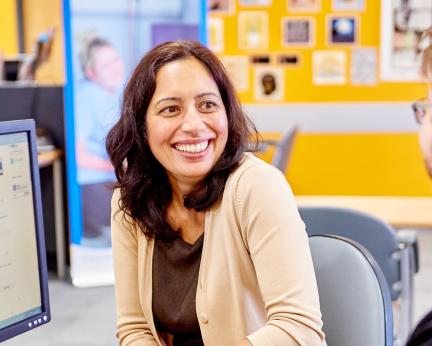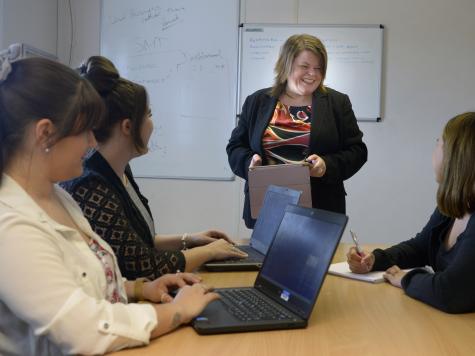
Be part of the NHS's digital revolution
Digital, data and informatics is one of the fastest growing areas in the NHS. It involves the intelligent use of information and technology to provide better care for patients.

You'll be rewarded
There’s more than one reason why a career in the NHS is rewarding. Not only will you enjoy a competitive salary, you’ll also get a generous pension and exclusive health service discounts too. And to help you enjoy a healthy work/life balance, you’ll work a flexible 37.5 hour week with 27 days holidays a year plus public holidays.
You'll also know that you are making a difference every day.

You'll have choice
There are many different roles in the the digital, data and informatics team. Whether you're working in knowledge and library services, cybersecurity or IT operations, you'll be making a difference every day.
Whatever your situation or strengths, digital, data and technology has a role for you.

You'll make progress
You’ll have countless opportunities to progress. You’ll enjoy continuous professional development, helping you to develop your skills, gain new ones, and progress to roles at a higher pay grade.
And with annual reviews and the support of our team, you’ll have career potential that matches your ambitions.
-
Some posts require few academic qualifications while others may need postgraduate qualifications or professional membership.
-
Many skills, for example website or app development and data management gained outside the health sector can be transferred across.
However, it's essential to read the person specification for any job vacancy you are considering.
Visit our role pages about careers in digital, data and technology to explore the range of roles.
-
There are a variety of roles available, depending on where you're based. For example, you might be based in a hospital in a physical library for healthcare staff and patients. Or you could work in an office as part of a virtual service using technology to manage resources and deliver training.
Alternately your role may involve outreach where you work remotely or go into the community to ensure healthcare staff such as GPs and physiotherapists have access to the evidence and information they need to make decisions.
Some posts require academic qualifications while others may need postgraduate qualifications or professional membership.
Find out more about working in knowledge and library services.






